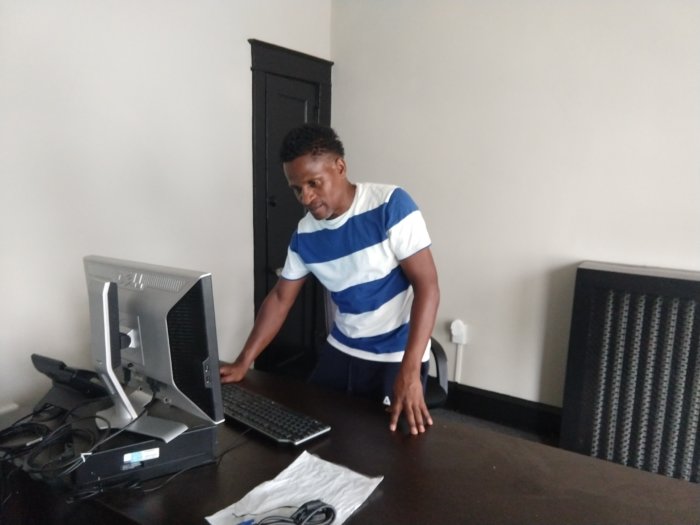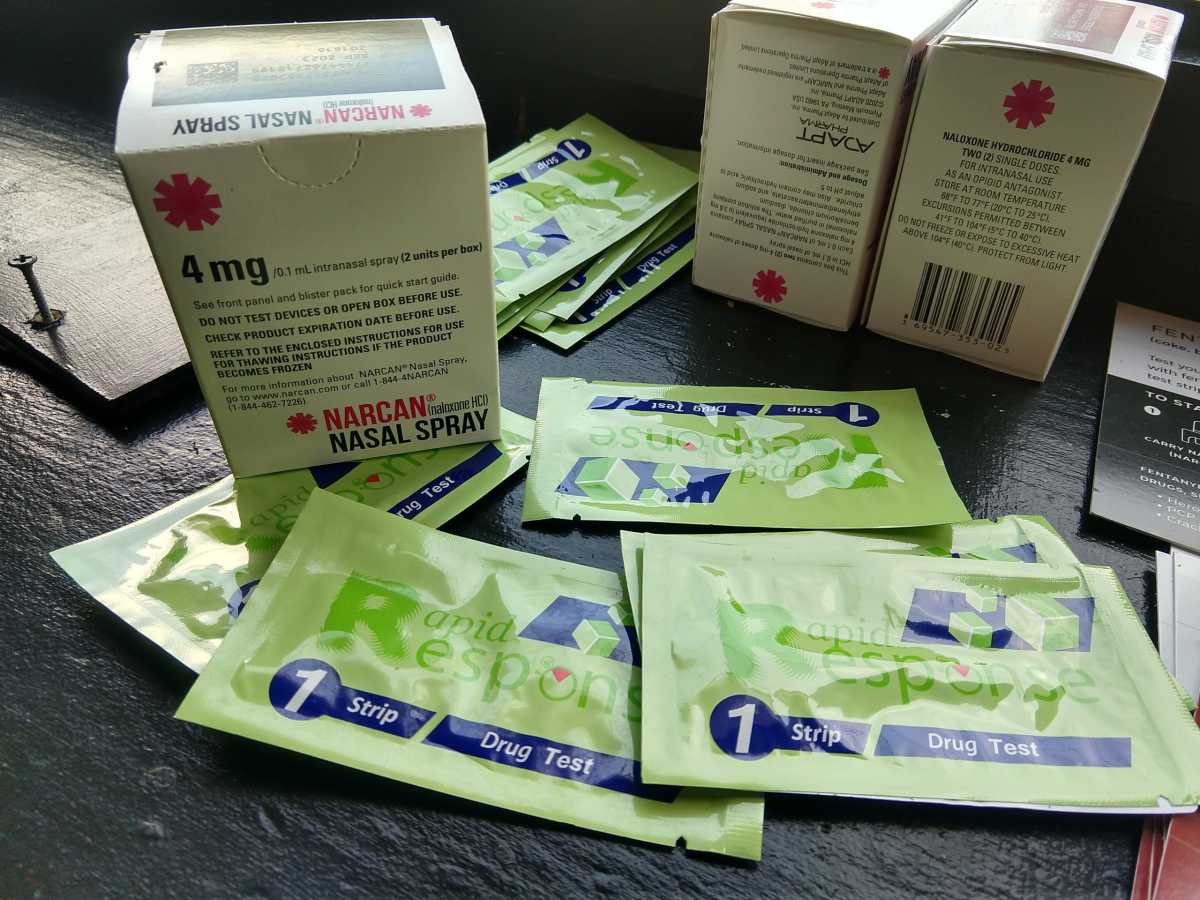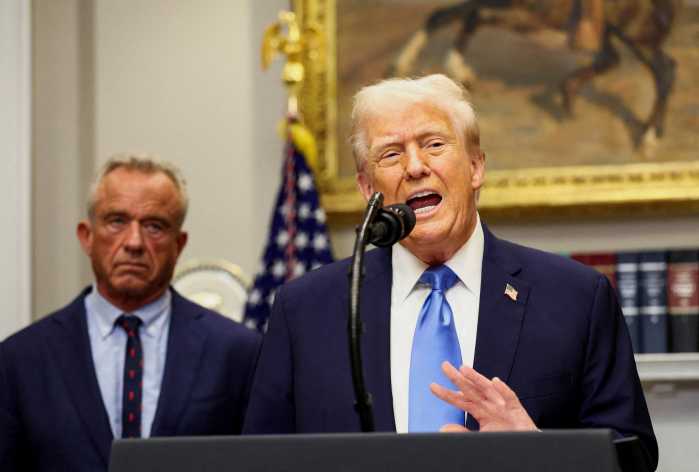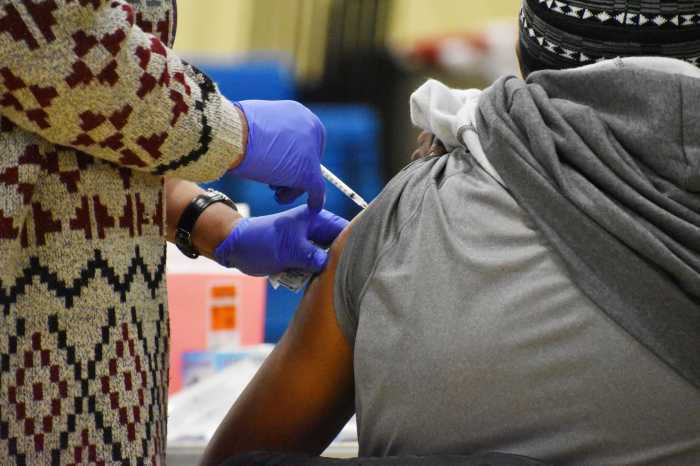For years, academics, community organizations, nonprofits, and the media made Kensington the epicenter of Philadelphia’s overdose crisis and white suburbia its face.
According to Andre Reid, such a focus comes at a cost.
“Nobody’s thinking about West Philly,” said Reid, an activist, philanthropist and founder of Philadelphia Nama, the local chapter of the National Alliance of Medication Assisted Recovery. “Nobody’s thinking about Point Breeze, nobody’s thinking about Southwest, Woodland Avenue. Nobody’s thinking about this neighborhood — Elmwood Avenue. Nobody’s thinking about these communities, because these communities, as I began to say, are marginalized communities that are basically deserts when it comes to treatment.”
Reid lamented the lack of medication-assisted treatment (MAT) in Philadelphia’s Black communities while standing next to boxes of naloxone and fentanyl test strips in a soon-to-be-opened community treatment center on Elmwood Avenue. In neighborhoods like Southwest Philadelphia, people experiencing opioid use disorder turn to illicit buprenorphine purchased on the street, using the lifesaving agonist therapy as a form of self-care. According to Reid, the dearth of MAT centers in the area — a form of redlining in a city known for its racial divides — leaves people with few other options.
In 2020, overdose fatalities rose 29% among Black Philadelphians from the previous year, compounding the trauma of African American communities disproportionately affected by the COVID-19 pandemic. Mandatory lockdowns only worsened the issue, where, in predominantly Black neighborhoods, a fentanyl-tainted drug supply, disparate treatment options, and cultural silence already make for a deadly combination. The opioid epidemic is a severe problem in the African American community, Reid said, and buprenorphine, the gold standard when it comes to medication-assisted treatment, is a solution to that.

Reid is a person with lived experience and a Baltimore native who now calls Philadelphia home. He’s the founder of Philadelphia Nama, the local chapter of the National Alliance of Medication Assisted Recovery, and Lived Experience LLC, a consulting firm centered on addiction issues in the city’s Black communities. At present, Reid is putting the finishing touches on his latest consulting job — a comprehensive community treatment center called the Integrated Community Healthcare Network in Southwest Philadelphia.
For him, the project is a labor of love, a volunteer effort done on his own time. Working on the new center gives Reid an opportunity to bring peer services, reentry support, treatment programs, continuing care, and more into the neighborhoods where they’re needed the most.
“And buprenorphine,” Reid said. “If you want to open this center I think you would have to apply buprenorphine to that.” Offering medication-assisted treatment was Reid’s one stipulation for taking the job.
ICHN sits in a rowhome on Elmwood Avenue, which, unlike many treatment centers, makes it a part of the community it serves. The hope is that the center’s unique location, instead of an abandoned storefront a bus ride or two out of the way, will normalize treatment in African American neighborhoods. When therapy is as typical as the corner store, Reid said, people can start to deal with the trauma caused by poverty, crime, and violence at the foundation of addiction.
“Somebody walking by here everyday [will] see it is clean,” Reid said. “And then you start realizing, you’re not ashamed, you’re not embarrassed, you’re not humiliated because you realize that, hey, I got to talk to a therapist. I got to deal with some issues that I’ve been holding on to for a long time.”
Once ICHN receives final approval from the state, which should come in the next few days, the center will open its doors to the public. According to CEO Joseph Marrone, a diverse team of professionals is at the foundation of this project, all dedicated to transforming a neighborhood too often ignored. “We’re excited to be part of a movement to make change in the community, not only on the local level, but citywide, helping the African American community and other community areas that need assistance for outpatient therapy where they can’t get it,” he said.
Last year, Philadelphia reported a near-record-breaking number of overdose deaths, fueled by an alarming surge of fatalities among the city’s Black residents. Death transcended neighborhoods, from Germantown to West Philadelphia; from Point Breeze to Elmwood Avenue. Over the years, Reid saw it all, including academics who swooped in to research the problem only to swoop right out when they were done, along with camera-mugging activists and politicians.
Now, he’s bringing something different to the table — a solution.
According to Reid, tackling the overdose crisis in Philadelphia’s Black communities will take community engagement, not outreach, as the former involves building a neighborhood from the ground up.
“The solution to this problem is not about color,” he said. “It’s not about Black and white. It’s about passion [and] finding people who care enough to want to do something about it.”

Metro is one of more than 20 news organizations producing Broke in Philly, a collaborative reporting project on economic mobility. Read more at brokeinphilly.org or follow on Twitter at @BrokeInPhilly.


























